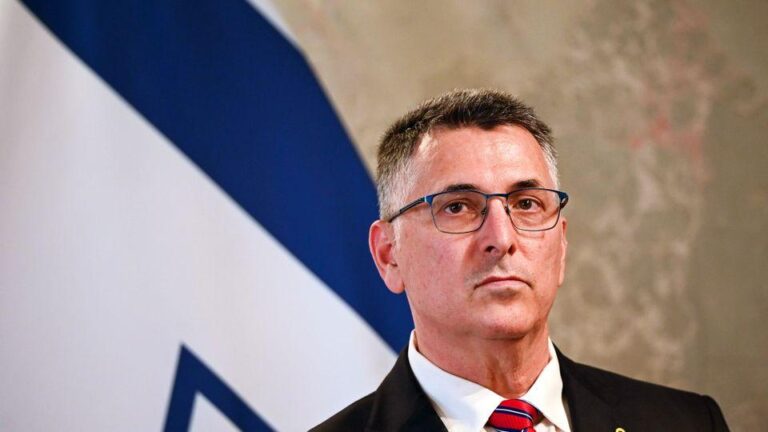French President Emmanuel Macron has called on the United States to reconsider its recent policy on Palestinian visas, emphasizing the need for more balanced and humanitarian measures. Speaking ahead of a series of diplomatic talks, Macron urged Washington to ease restrictions that have drawn sharp criticism from Palestinian leaders and international observers alike. The appeal underscores growing tensions over US immigration policies affecting Palestinians and highlights France’s ongoing role in Middle East diplomacy.
France’s Macron Calls on US to Reconsider Palestinian Visa Restrictions
French President Emmanuel Macron has publicly urged the United States to reconsider its recent visa restrictions imposed on Palestinians. Macron emphasized the importance of maintaining open channels for diplomatic, humanitarian, and cultural exchanges between the US and Palestinian territories. The visa measures, which have faced criticism from various international entities, are viewed by Macron as potentially harmful to ongoing peace efforts and regional stability.
Highlighting the key concerns, Macron pointed out the following issues associated with the current restrictions:
- Impediments to humanitarian aid workers traveling freely
- Challenges faced by Palestinian students and researchers seeking academic opportunities
- Reduced diplomatic dialogue, slowing peace negotiations
| Stakeholder | Impact of Visa Restrictions | Macron’s Suggested Approach |
|---|---|---|
| US Administration | Security-focused but criticized for limiting engagement | Adopt balanced policies that consider diplomatic needs |
| Palestinian Communities | Restricted movement affecting education and aid | Facilitate easier access to travel for humanitarian purposes |
| International Peace Efforts | Risk of stagnation and decreased dialogue | Ensure visa policies support active negotiations |
Impact of US Visa Policies on Palestinian Diplomats and Regional Stability
Recent restrictions imposed by the US on issuing visas to Palestinian diplomats have sparked a wave of concern from international leaders and analysts alike. These policies have significantly hindered diplomatic engagement, impeding the ability of Palestinian representatives to attend critical negotiations and international forums. The travel limitations not only obstruct direct dialogue but also risk undermining efforts towards peace and regional cooperation. France’s President Emmanuel Macron has publicly urged the US administration to reconsider its stance, emphasizing that such measures contribute to escalating tensions rather than alleviating them.
The broader implications on Middle Eastern stability are multifaceted. Experts highlight key challenges presented by the visa policies:
- Diplomatic Isolation: Palestinian officials face increased exclusion from global platforms.
- Regional Instability: Reduced diplomatic channels may exacerbate conflicts and complicate peace processes.
- Impact on Multilateral Efforts: Cooperation between nations on security and humanitarian issues becomes constrained.
| Aspect | Effect |
|---|---|
| Diplomatic Presence | Reduced access to US and international forums |
| Peace Negotiations | Delayed or stalled due to lack of direct representation |
| Mutual Trust | Erosion, increasing regional tensions |
Recommendations for Enhanced Diplomatic Engagement Between France, US, and Palestine
Strengthening diplomatic channels between France, the United States, and Palestine requires a multifaceted approach rooted in mutual respect and strategic collaboration. First, reopening direct communication lines focused on visa policies can ease current tensions and create a framework for long-term cooperation. Ensuring that visa restrictions do not hinder humanitarian, academic, and cultural exchanges is pivotal in fostering goodwill and trust among all parties involved.
Additionally, coordinated efforts should prioritize:
- Joint task forces to monitor and resolve visa and immigration concerns efficiently
- Regular trilateral summits to address emerging diplomatic hurdles and update policy stances
- Shared platforms for dialogue on human rights and socio-economic development in Palestine
| Focus Area | Proposed Action | Expected Outcome |
|---|---|---|
| Visa Policy | Reassessment of restrictions and improved consular processes | Increased mobility & trust among stakeholders |
| Diplomatic Dialogue | Annual trilateral meetings hosting key diplomats | Enhanced mutual understanding & proactive conflict resolution |
| Cultural Exchanges | Expand educational and humanitarian visas | Strengthened people-to-people ties and awareness |
Concluding Remarks
As the diplomatic dialogue continues, France’s call for the United States to reconsider its stance on Palestinian visas underscores the ongoing complexities in Middle East policy. Observers will be watching closely to see whether Washington adjusts its approach in response to Paris’s appeal, as the issue remains a critical component of broader efforts toward regional stability and peace.




